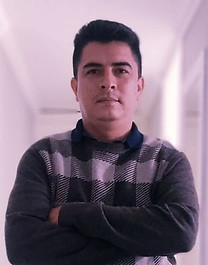
© U.S. Department of State
TRUST & INTEGRATING FORMERLY ARMED ACTORS IN FRAGILE CONTEXTS
20 April 2023
11:00-12:00 (EST) / 16:00-17:00 (GMT)
Passcode: N9#CYDb@
Speakers:
Professor Alpaslan Özerdem, Dean of the Jimmy and Rosalynn Carter School for Peace and Conflict Resolution

Prior to his appointment as Dean of the Carter School in August 2019, Dr. Özerdem was Associate Pro-Vice-Chancellor for Research at Coventry University in the UK. Dr. Özerdem specializes in conflict resolution, peacebuilding and post-conflict reconstruction. With over 20 years of field research experience in Afghanistan, Bosnia-Herzegovina, El Salvador, Indonesia, Kosovo, Lebanon, Liberia, Nepal, Nigeria, Philippines, Sierra Leone, Solomon Islands, Somalia, Sri Lanka, Tajikistan and Turkey. Dr. Özerdem has undertaken numerous research projects that were funded by the UK’s Economic & Social Research Council (ESRC); British Academy, US Institute of Peace, and various US and European Union funding schemes.
Federico Montes is a signatory of the Final Peace Agreement between the FARC guerillas and the Colombian Government. As a member of the Coombuvipac Cooperative, he has been involved in planning and designing reincorporation processes for ex-combatants at the local level. He is currently a member of the Comunes political party, and has been selected by them to be a delegate in the Commission for Monitoring, Promotion and Verification of the Implementation of the AFP (Final Peace Agreement).

Federico Montes Signatory of the Colombian Peace Agreement with the FARC Comunes Party Delegate in the CSIVI of the Final Peace Accord

Juana García Duque is an Associate Professor at the Business School of the Universidad de los Andes in Colombia. Her research focuses on international development, including the role of international cooperation and private sector in peacebuilding processes, and the study of internationalization and emerging economies. She was a Visiting Scholar at the David Rockefeller Center for Latin American Studies at Harvard University in 2019-2020. She led the participation of Universidad de los Andes with the Colombian Agency for the Reintegration of Ex-combatants, documenting the process of reintegration and reincorporation, and is part of the Academic Committee for the Masters degree in Peacebuilding.
Moderator:
Dr Erin McFee, UKRI Future Leaders Fellow,
LSE Latin America and Caribbean Centre (LACC)

Dr Erin McFee is Principal Investigator in the Trust after Betrayal Project at the LSE LACC. She completed her PhD in Human Development at The University of Chicago, an MA in the same, and obtained an MBA from Simmons University in Boston. Erin’s research focuses on individuals who decide to take up and lay down arms with non-state armed groups, the interventions that target these individuals, and the topic of trust in societies and communities that have experienced mass atrocities. She draws from theoretical work in philosophy, anthropology, and social psychology, and her work speaks to both the academic and public policy domains.
Topic Background:
Formerly Armed Actors (FAAs) are individuals who have been a part of armed groups, including militias, criminal organizations, state militaries, and others, who have been involved in acts of violence. The concept of FAAs recognizes that these individuals have lived experiences that are similar, despite being part of different groups.
Reintegration programs are designed to help FAAs transition back into society and become active contributors to their communities. These programs aim to promote peace and security, as well as rebuild trust between the state and its citizens. The word integration has replaced the traditional term "reintegration" to emphasize that the experiences of war and violence have left a lasting impact on both the FAAs and their social environment. Leaving an armed group is often not a simple process of return.
Building trust can be challenging, especially in contexts with a history of violence, mistrust, and trauma. In some cases, there may be long-standing ethnic, religious, or identity-based conflicts that reproduce these divisions. Community members may view FAAs as perpetrators of human rights abuses or violent acts, creating feelings of fear, anger, and resentment. Contextual factors such as poverty, unemployment, poor education, and marginalization can also contribute to mistrust and resentment among communities. Despite these challenges, trust remains essential for integrating FAAs and promoting less violent futures.